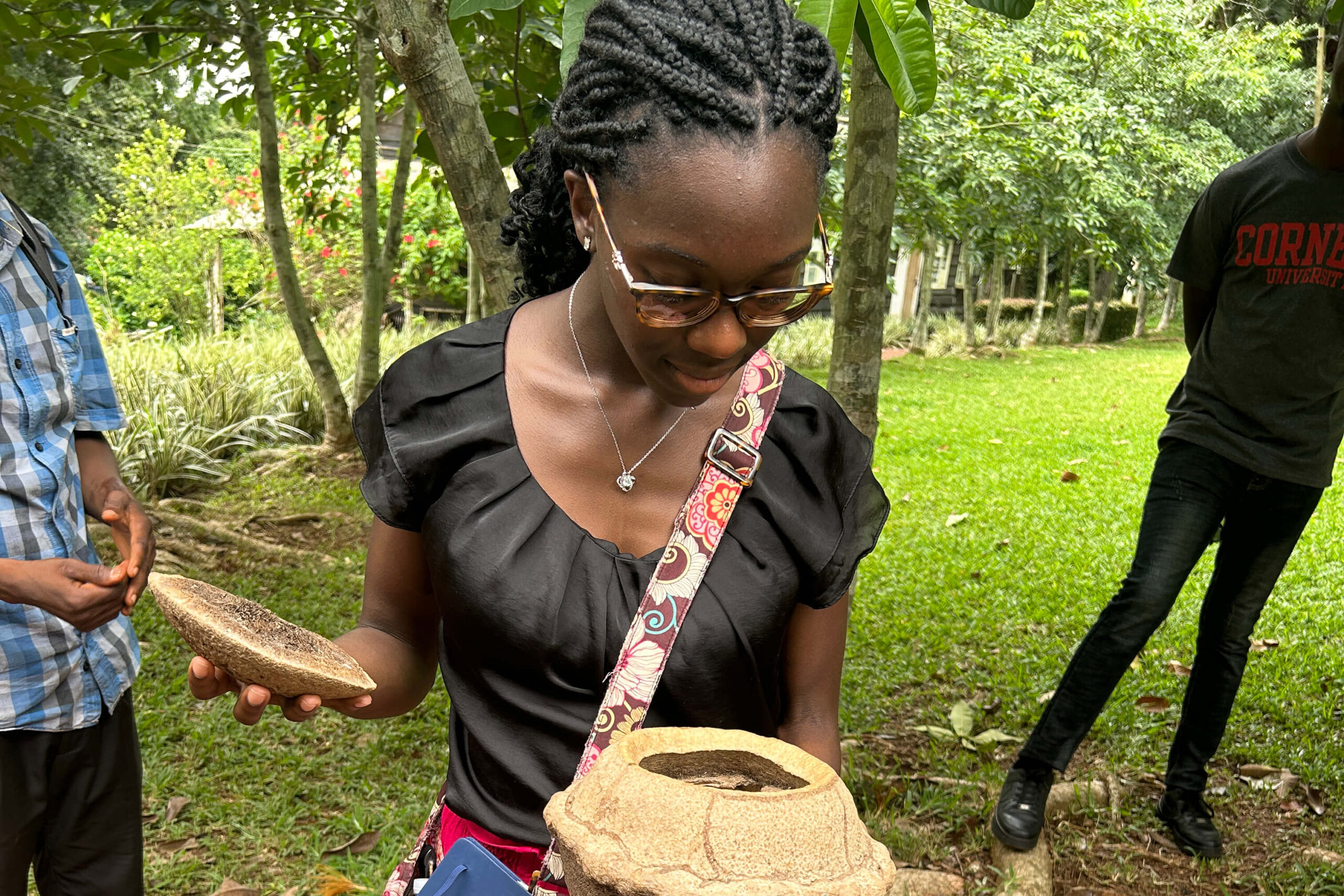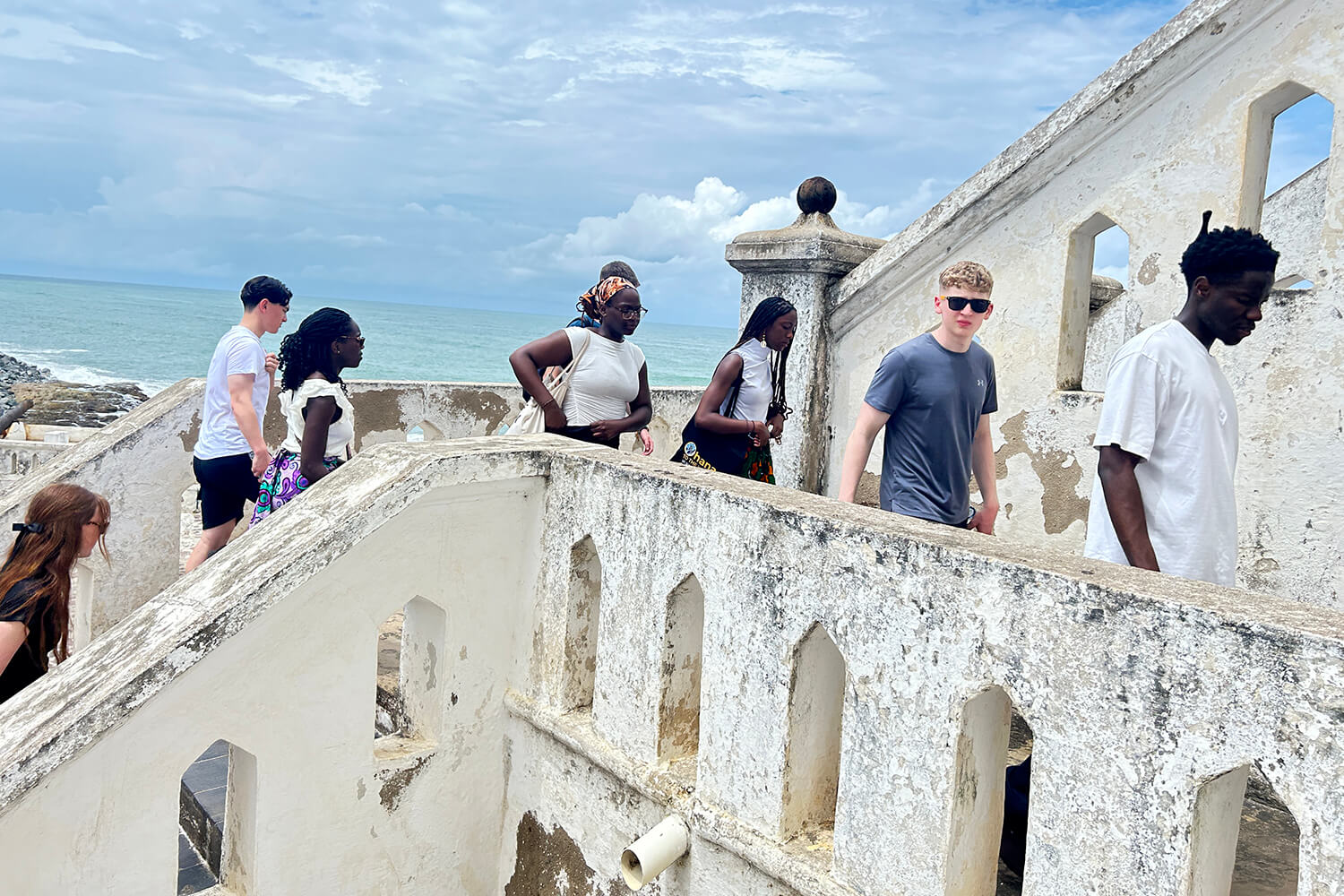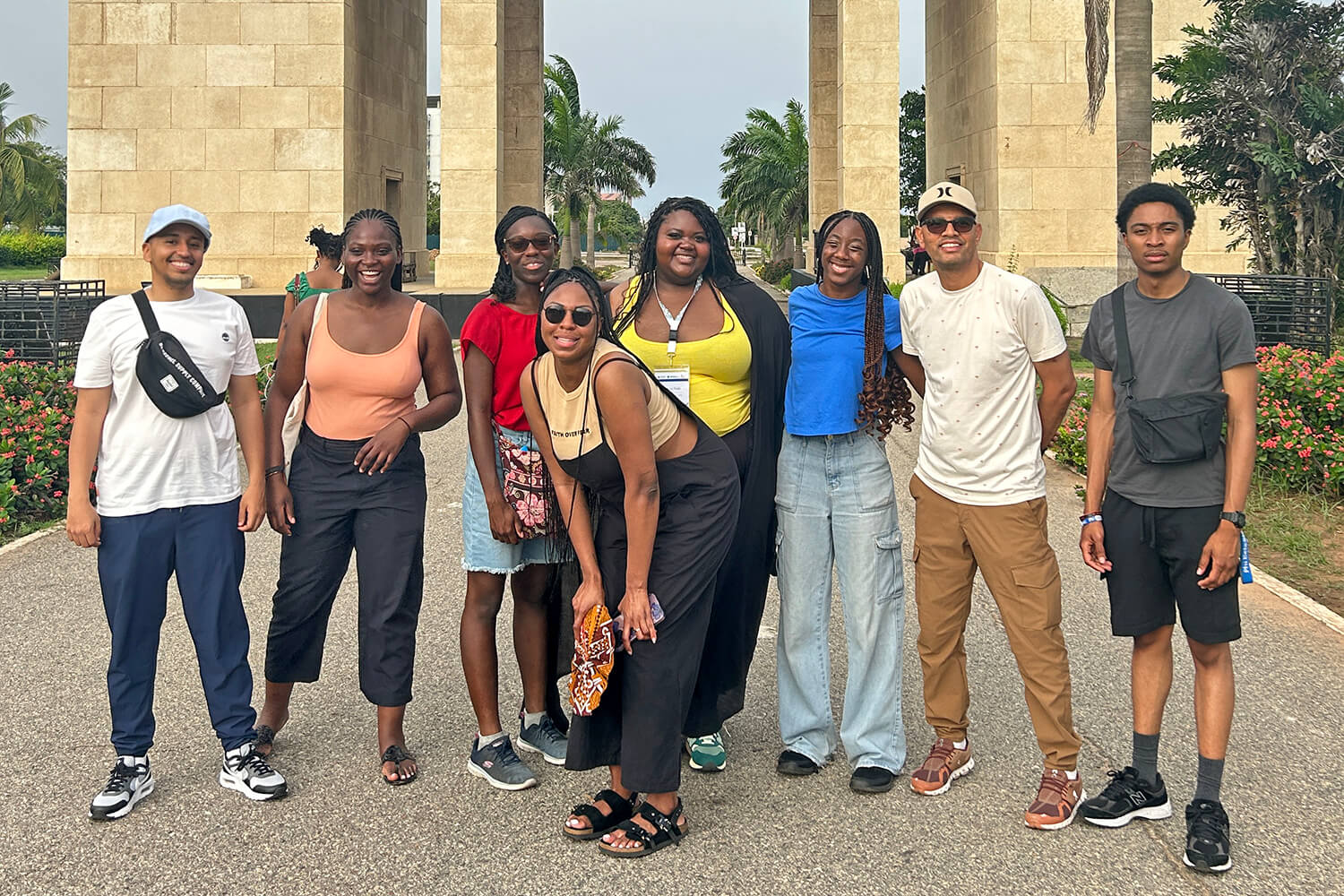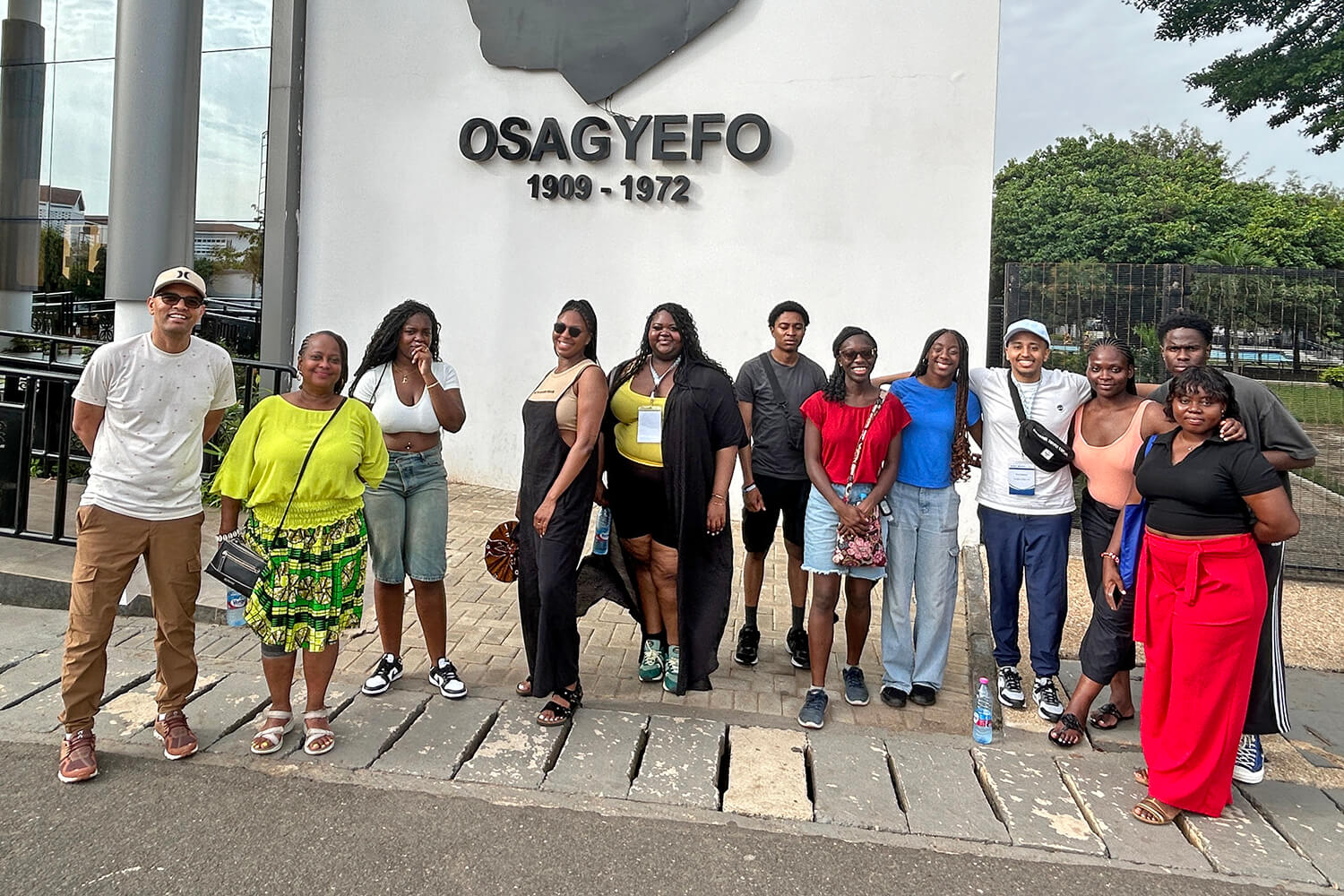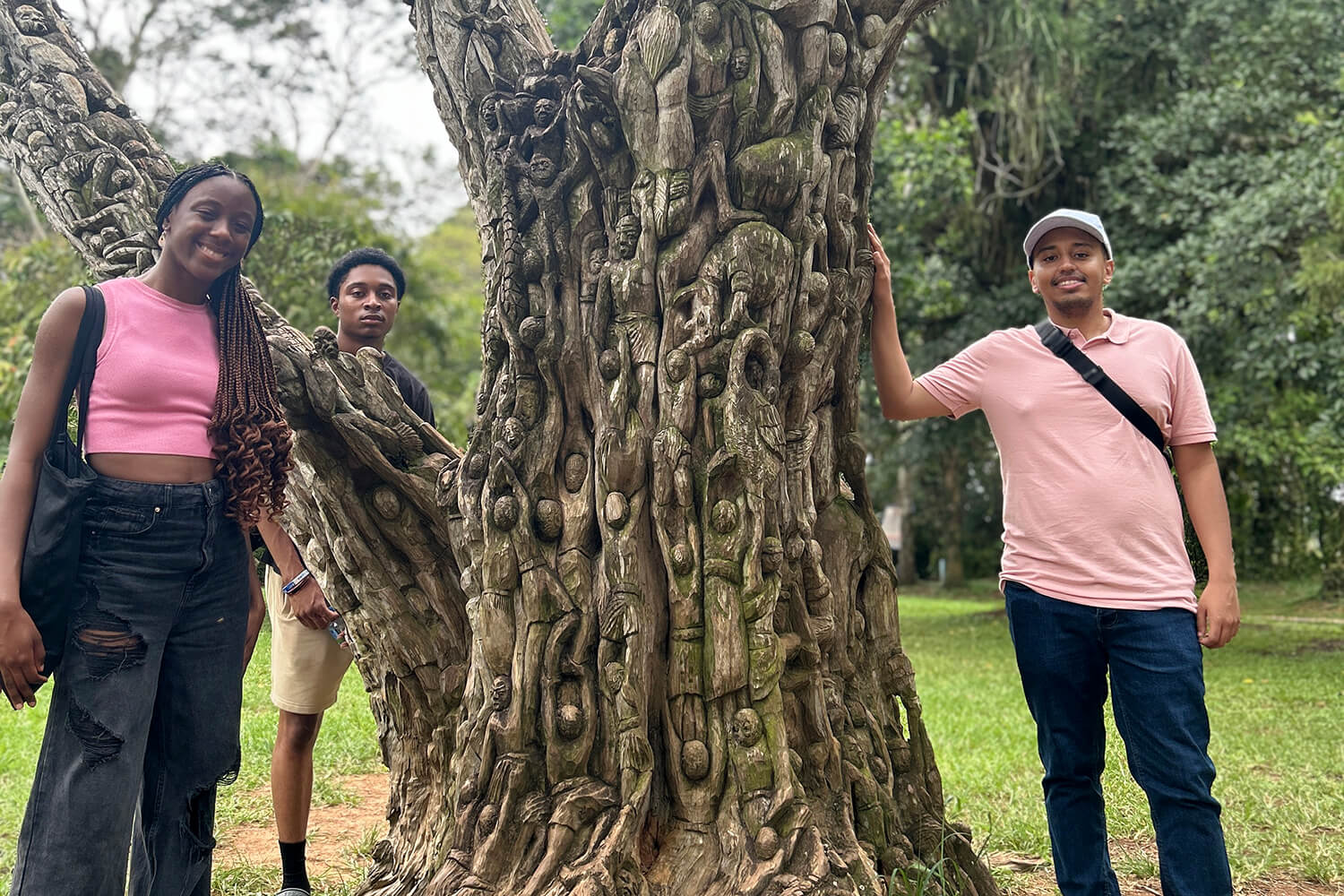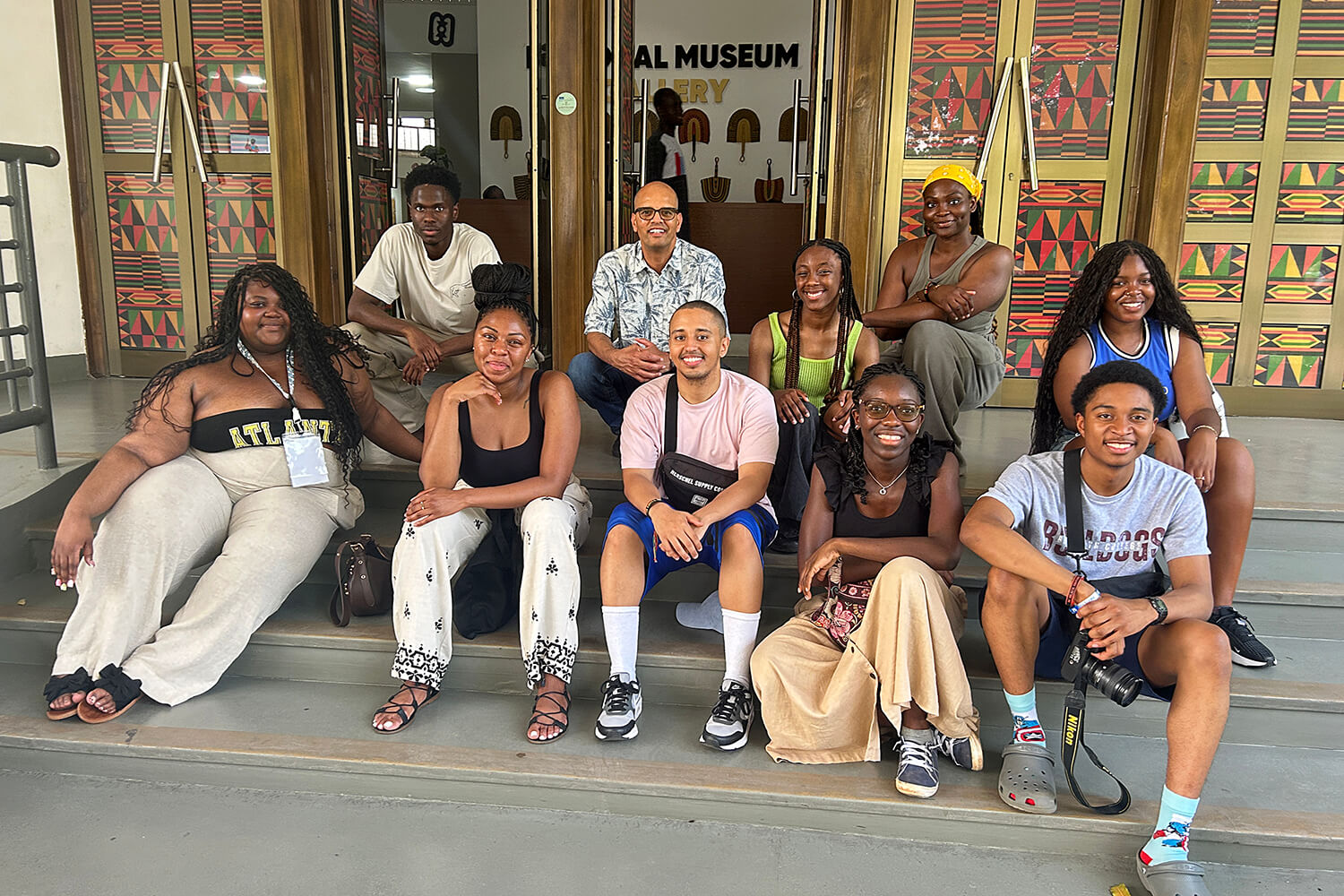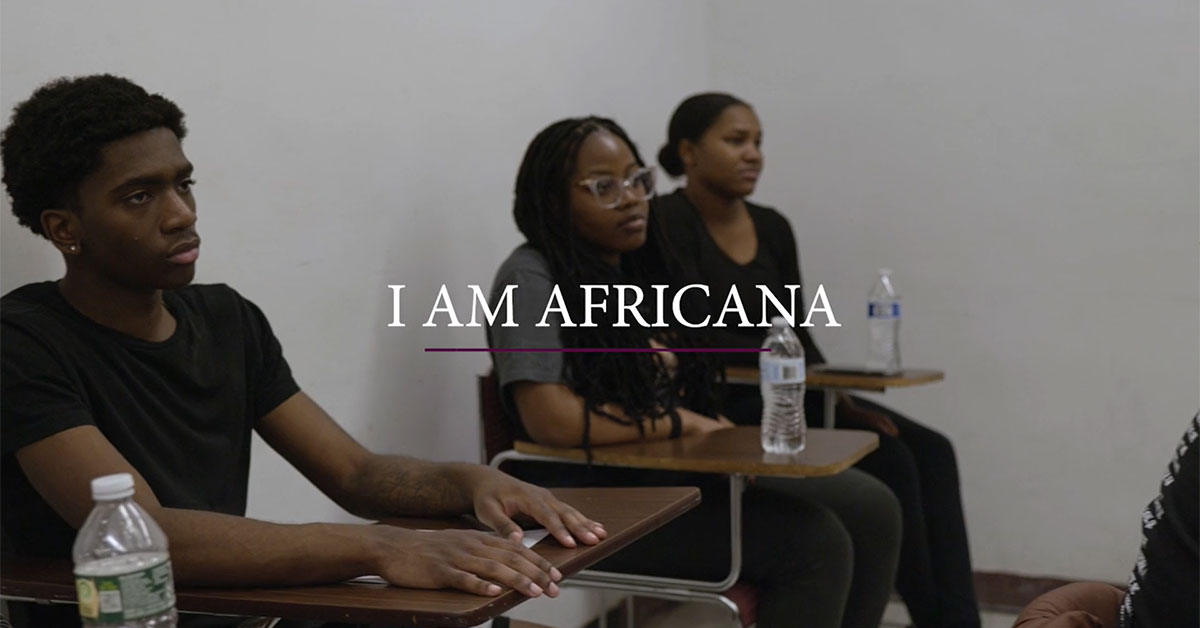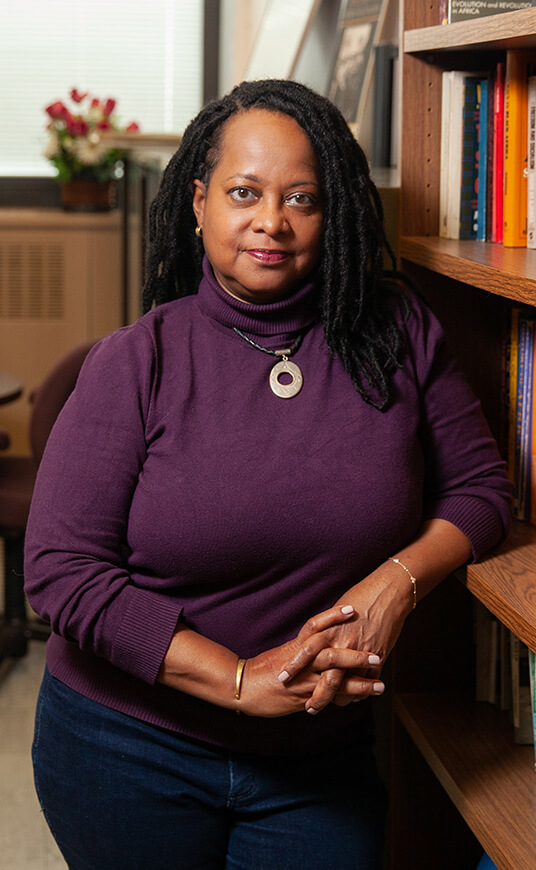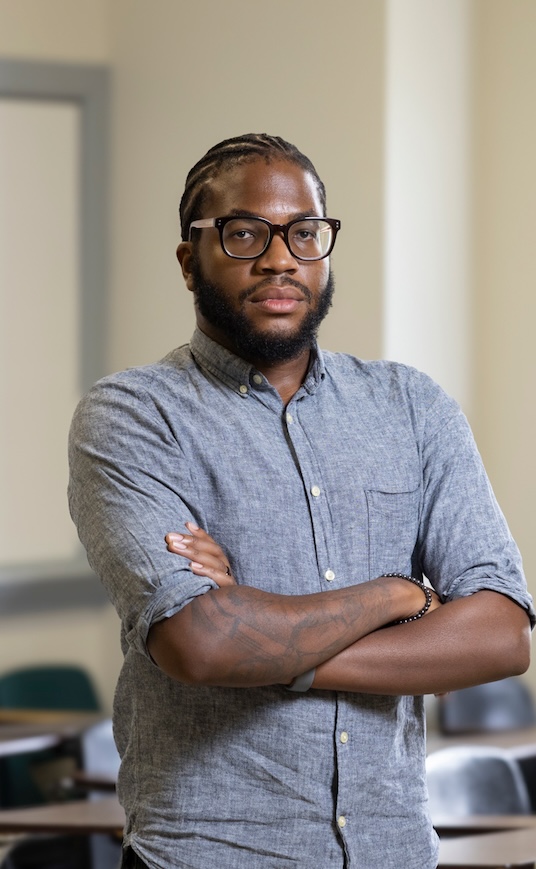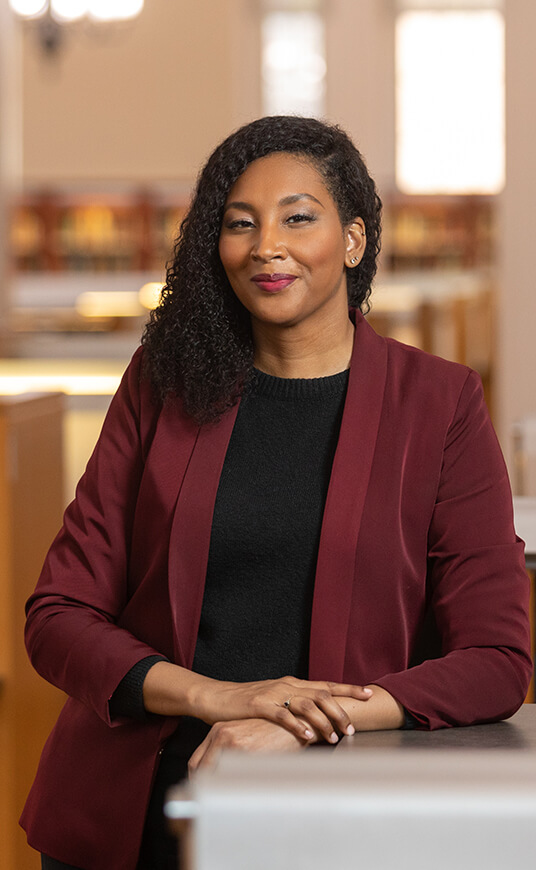Africana Research Center
The Africana Research Center promotes research in Africana studies as well as Black community political, cultural, and economic issues.
About the Center
The Africana Studies Center supports intellectual inquiry that advances a holistic approach to studying peoples of Africa and its diaspora. The center supports the field of Africana studies, which simultaneously challenges stereotypes, rectifies historical exclusions, and fills critical gaps in our understanding of the world. Africana studies calls upon us to look critically at ourselves and the community at large, consciously expanding our knowledge base to include issues of class, gender, and sexuality.
Together with the Africana Studies Department, the center’s research and programming provides students and community partners with the knowledge and intellectual skills to improve their lives and those in their communities. The center provides opportunities for students to feel seen in the classroom and adds important intellectual diversity to the college campus. It serves as a bridge between Brooklyn College and African diasporan communities in New York, Africa, and the Caribbean.
Opportunities for Students
Study Abroad
Our faculty-led study abroad programs to Ghana are life-changing.
Oral History Project
Museum educator and student Natasha Fearon spoke with PIX11 about an oral history project at the Old Stone House in Brooklyn.
REIMAGINE LEFFERTS
Students have the opportunity to intern at the Lefferts Historic House in Prospect Park, where they participate in interpreting the lives of those who were enslaved there.
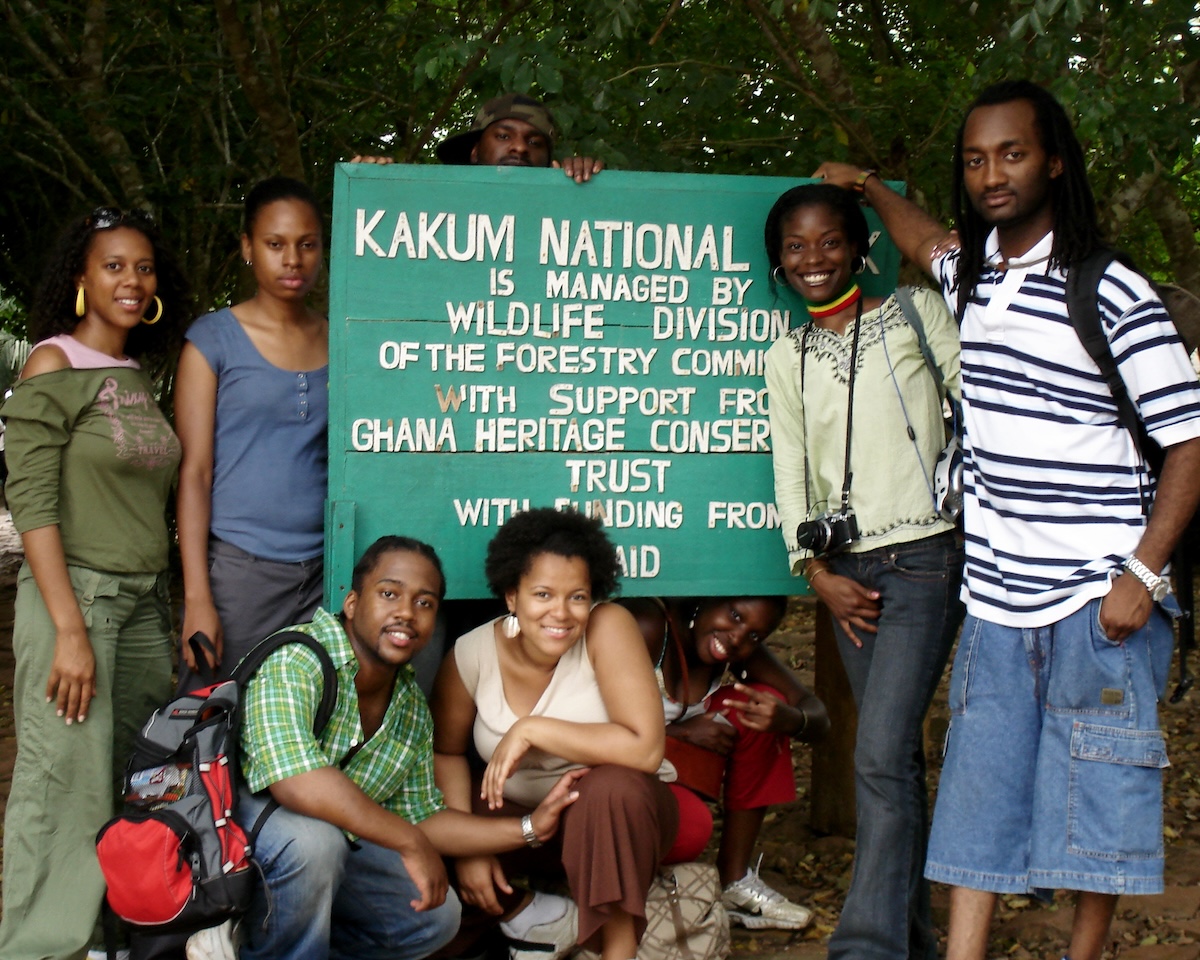
Summer 2024 Study Abroad to Ghana
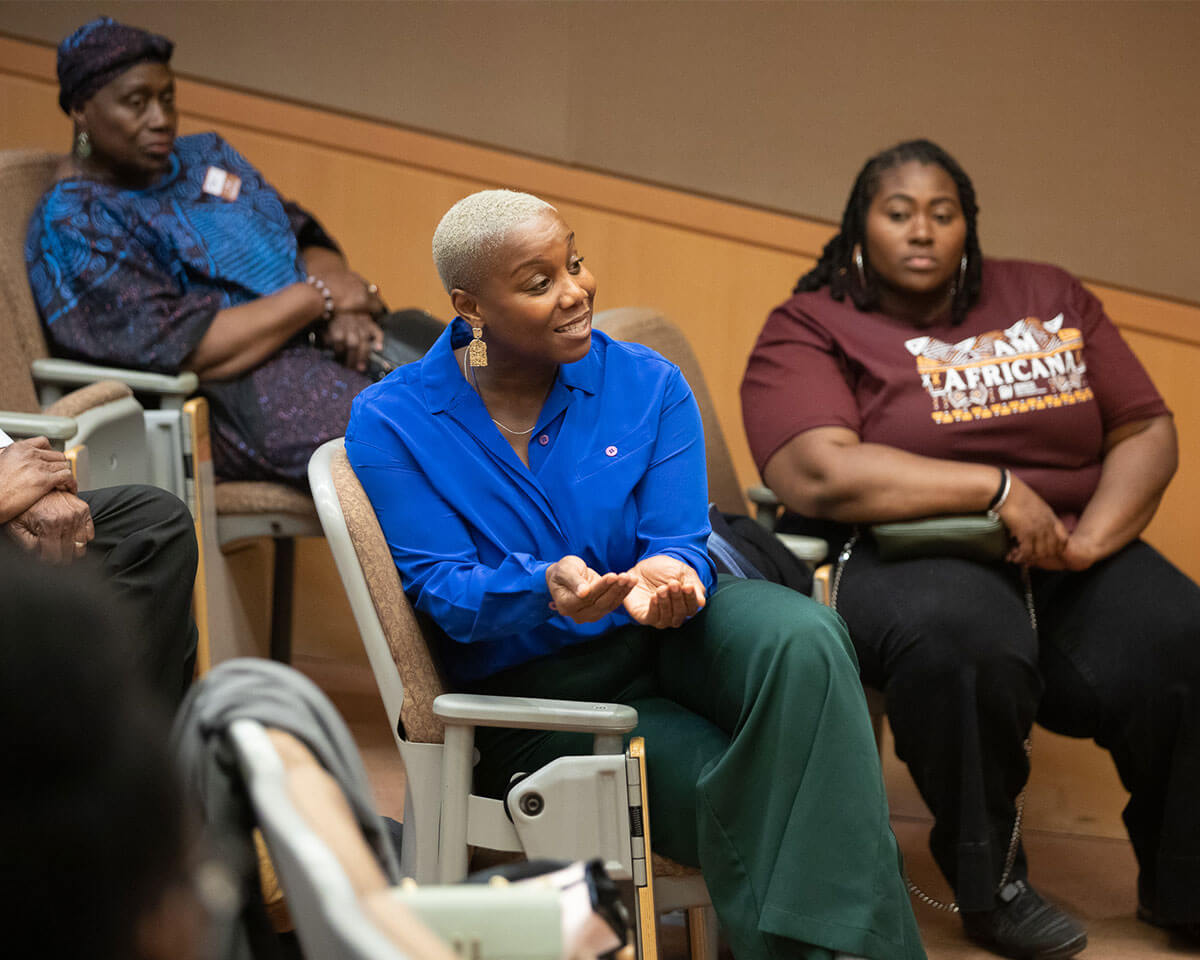
I Am Africana Conference
Held in May 2023, the I Am Africana Conference showcased the past, present, and future of the field and the Africana Studies Department.
Faculty
History of the Center
The Africana Research Center (formerly the Africana Research Institute) was founded in 1969, with a mandate to promote research in Africana studies and then-current Black community political and economic issues. The center thus harks back to the larger national movement to diversify higher education and closely intertwines with major debates and struggles that have continued to transform education at CUNY.
The establishment, first of the institute and then of the Africana Studies Department, was a response to the change in the mission of the CUNY colleges, when its longstanding and much cherished policy of free tuition was coupled with the short-lived and bitterly contested policy of “open admissions” (1970–78).
An influx of students reflecting the racial and ethnic diversity of the city and borough transformed Brooklyn College’s “highly homogeneous” student body into a diverse one with significant percentages of African American, Caribbean, and Latino students. The development of the Africana, Puerto Rican, and Judaic Studies departments was an integral part of Brooklyn College’s strategic response to the changing nature of its student body.
The mandate of the center also included cultural presentations by Black artists, lectures by Black scholars, and other activities designed to enhance the quality of education for students at Brooklyn College. During its tenure of operation, the center sponsored lectures and conferences, recruited two scholars to occupy the Distinguished Martin Luther King, Jr. Chair (now defunct), and made several other major contributions to the growth of Black studies and to the prestige of Brooklyn College, including the creation of the Department of Africana Studies.
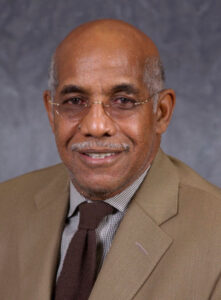
Milfred Fierce
Under its auspices, the center began a study abroad program; published a newsletter and a short-lived scholarly journal, Black Prism; launched an oral history project focusing on Black senior citizens throughout New York City; and held three conferences focusing on the Caribbean. The center also sponsored the publication of Slavery Revisited: Blacks and the Southern Convict Lease System 1865–1993 by Professor Milfred Fierce and sponsored or co-sponsored numerous student programs. The center accepted a large collection of African masks and sculptures and collected dozens of rare books, including first-edition African American history monographs by Carter G. Woodson, W.E.B. Du Bois, and Booker T. Washington. It continues to serve as the repository of faculty publications, the African art collection, documents that memorialize the department, and the rare book collection, all that physically remain of the original institute.
While formal institutional funding was suspended during the 1970s because of the New York City financial crisis, the Africana Studies Department continued the academic mission of the center through its study abroad program and voluntary efforts by faculty members who continued to collect materials as a foundation for its reactivation in 2023. Furthermore, faculty have continued to pursue their research, teaching, mentoring, and program planning activities, thus advancing the mission of the center.
Contact Information
Lynda Day, Professor
3107a James Hall
E: lday@brooklyn.cuny.edu
P: 718.951.5597

